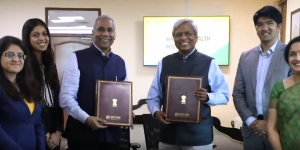Google Translate – an automatic translation service that uses state-of-the-art technology, not human translators, to translate text – provides instant translations in different languages. By providing these translations, we hope to make essential information available to a diverse range of investors. However, please be aware that, since translations are done by machine, they may not always be perfect. Please see our disclaimer at the bottom of this page.
Disclaimer
We provide this link to Google Translate as a courtesy to visitors. We do not own, manage or control any aspect of Google Translate and are not responsible for the translations provided by Google Translate. We do not make any promises, assurances, or guarantees as to the accuracy, reliability, or timeliness of the translations provided. We can only verify the validity and accuracy of the information provided in English. Viewers who rely on information through Google Translate on our website do so at their own risk. We shall not be liable for any inaccuracies or errors in the translation and shall not accept liability for any loss, damage, or other problem, including without limitation, indirect or consequential loss or damage arising from or in connection with use of the Google Translate Service. By using Google Translate, you understand and agree to this disclaimer. If there are any concerns regarding the accuracy of the information presented within the translated versions of our site, please refer back to the official English language website.








































































